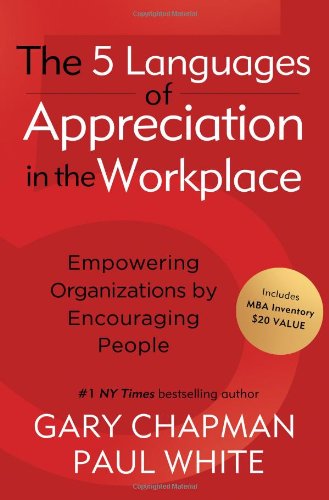 Photo Credit: Ben+Sam, Flickr
Photo Credit: Ben+Sam, Flickr
The Energizer Bunny is an iconic symbol of its own message: “It just keeps going and going…” Such is our belief in high capacity employees and volunteers. In fact, the default is never imagine these tireless folks could run out of steam. Photo Credit: Sarah_Ackerman, Flickr
Photo Credit: Sarah_Ackerman, Flickr
They don’t usually. However, there are situations when their “keep going and going” is out the door.
 Photo Credit: LinkedIn
Photo Credit: LinkedIn
This week, Carey Nieuwhof, one of my favorite leadership guys, pointed us to the 6 reasons he believes we lose high capacity volunteers.
[High capacity: Nieuwhof describes these folks as those who “can attract other capable leaders; don’t drop balls; love a challenge; constantly overperform”.]
This content is easily generalized to the workplace.
Before we launch into Nieuwhof’s observations, let’s celebrate high capacity folks for a moment. Even as you read this, you may be thinking of a colleague or fellow volunteer who immediately came to mind. That person who stays long at-task after others have lost interest, determined to figure out the solution or finish the project. That person we count on to be “a rising tide that lifts all boats”. That person who carries the ball or puts all she has in the game as if the outcome depends on her. Dependable, tireless, and visionary. Like in the classroom, we in leadership roles too often focus on others more than these because 1) others are either more needy or more demanding, and 2) we figure these “energized” ones don’t need our oversight. Photo Credit: Pixabay
Photo Credit: Pixabay
We communicate core values in this, whether we’re aware or not. Nieuwhof’s insight and counsel are much-needed in a high-pressure workplace or organization. For leaders who themselves are already stretched, we count on our high capacity folks to stay at the work they love and we focus our energy elsewhere. Actually, the return on such our investment here, as prescribed by Nieuwhof, would work to our advantage.
6 reasons you’re losing high capacity volunteers (employees)
- The challenge isn’t big enough. – When the role is too well-defined and task-oriented with little scope for a broader impact, high capacity individuals may lose interest. It’s less that they have to matter (to the larger organization) but that their work matters…and they can see that by the trust given to them in the challenge.
- Your vision, mission and strategy are fuzzy. – Nieuwhof defines these as: “Mission is the what. Vision is the why. Strategy is the how.” If high capacity individuals are clear on the why, they can engage with the mission and go all crazy with the generation and execution of strategy. Leaders are wise to set vision and then let loose these folks to get after it.
- You’re disorganized. – Plenty of us struggle with being organized. It can come with the chaotic schedule of leaders and managers. As we work with our high capacity employees and volunteers, we are wise to focus on providing them with what they need to be successful (direction, resources, right people at the table – including those in charge, on occasion). As time-consuming as this may seem, the outcomes will always be worth it.
- You let people off the hook too easily. – Nieuwhof doesn’t mean this in a mean-spirited way. Without intention, we can find ourselves modeling a low-accountability, slacker-friendly work ethic. Not because it is what we value but because our own heavy work-load keeps us from moving our personnel (or volunteers) to the next level of performance. We talk about it (in meetings galore) but we struggle to truly expect it in a real (work)life situation. We keep depending on our high performers to carry the bulk of the workload. High capacity individuals don’t necessarily mind the work but they crave high standards. They see the value and want it for themselves and for those they work alongside. Again, not in a mean way but in a genuinely caring way.
- You’re not giving them enough personal time. – Ouch! Where on our full to busting schedules are we going to insert time to touch base with our high capacity folks? We’re talking minutes here – fractions of time in a workweek – that will yield way more than we think. Dropping a meeting or two off our schedule to add face-time with these individuals will speak volumes to how you value them and what they bring.
“Unless you’re intentional, you’ll end up spending most of your time with your most problematic people and the least amount of time with your highest performing people. Flip that.” – Carey Nieuwhof - You don’t have enough other high capacity volunteers (or employees) around them. – We make a grave error in judgment when we think our high performers just want to be left alone to do their work. These individuals are often energized by others like them. They welcome opportunities to learn from and encourage each other. Turn over large projects to these folks and give them the authority and resources to run them together. Then give them the perks of such responsibility – they present on the project; their names are linked to the project; they travel to represent the project. Is it because high capacity individuals need the recognition or significance such a collaboration gives them? No. They have already had the satisfaction of doing a good work with valued coworkers. What this does is to say to the company, organization or world that their bosses truly know and publicly value their contribution. That matters.
A lot to chew on on a Monday morning. Thanks, Carey Nieuwhof. Please write another piece on how you apply this wisdom in your own workplace.
[By the way, y’all, don’t miss the Carey’s commentary on his 6 reasons AND the comments at the end of his blog – so good!]
Blessings!
6 Reasons You’re Losing High Capacity Volunteers – Carey Nieuwhof
9 Phrases Bosses Should Say Often to Inspire and Motive Others – Marcel Schwantes
8 Bad Mistakes That Make Good Employees Leave – Travis Bradberry
Great Entrepreneurs Look After Their Employees
 Photo Credit: Pixabay
Photo Credit: Pixabay




